Chief Champions for Community Health Outcomes
By: Mikailie Caulder
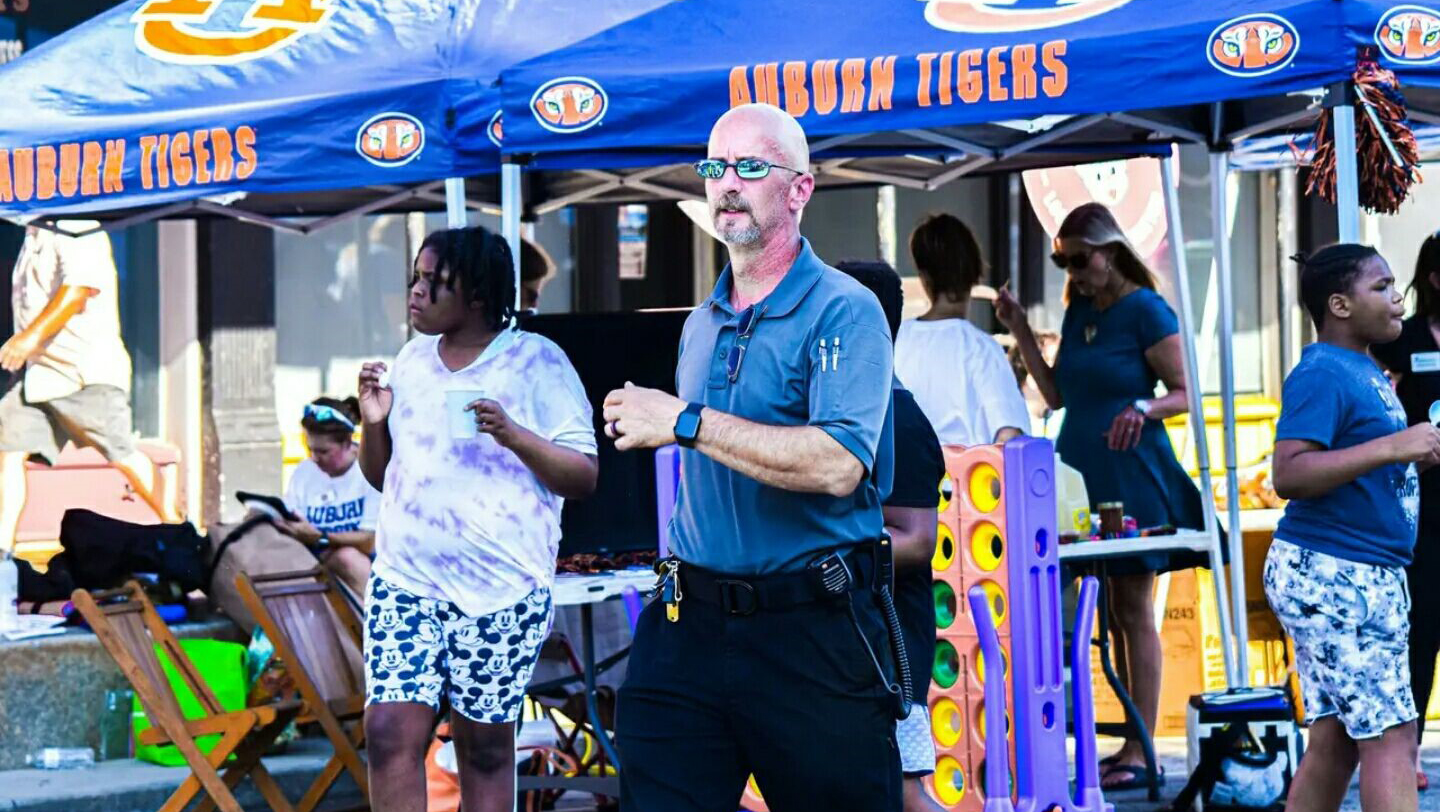
When a visitor steps into the Chambers County Community Health and Wellness Center, one of the first faces they are likely to encounter is that of Fire Chief Jim Doody. Known for his warm smile and unwavering commitment to service, Chief Doody has earned the title of local Health Champion, a title he considers both humbling and motivating. “We are the Buc-ee’s of healthcare when it comes to being the example for everyone else,” he shares with pride. “I think in a couple of years, we will see some dramatic changes in attitude towards healthcare in Alabama because of the work we’re doing here.” His welcoming demeanor and steadfast advocacy for healthcare in his community has not only inspired visitors but has also served as a guiding light for the Rural Health Initiative’s leadership team.
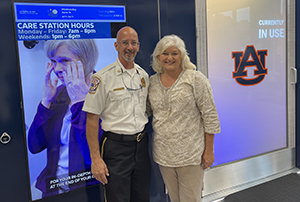
Over the past three years, Chief Doody has played a vital role in shaping the Rural Health Initiative, emphasizing the unique challenges facing his community. His collaboration with Auburn University and the Rural Health Initiative team reflects his deep understanding of the value of both partnerships and service. “The biggest motivator for us is seeing the response from the citizens,” he explains. One innovative aspect of this collaboration is the introduction of nurse ride-alongs, which have allowed the fire department to provide hands-on education for nursing students at Auburn University.
“The biggest thing is being the patient’s advocate. I wouldn’t be as supportive of this technology if I didn’t see that it can make an impact on everyone,” he shares, emphasizing his belief in the Rural Health Initiative. Whether hosting tours for distinguished guests at the Chambers County Community Health and Wellness Center, solving technical concerns, or advocating for OnMed Care Stations in rural communities, Chief Doody exemplifies leadership in action, inspiring those around him to prioritize health and community well-being. “Imagine the impact this could have in every community,” he says, envisioning a brighter future for rural healthcare in Alabama.
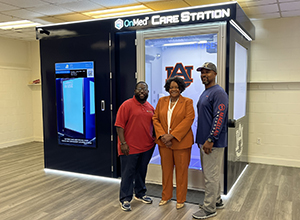
Chief Doody is not the only Chief beating the drum of health for a rural Alabama community. The spirit of service is shared by Fire Chief Mike Gibson of Greene County, another local champion reshaping his community’s approach to health and safety. A proud Boligee native, Chief Gibson returned home after 21 years in the Navy, determined to give back to the community that shaped him. His plan to join the local volunteer fire department took an unexpected turn when the previous chief retired, propelling him into a leadership role he accepted with steadfast commitment.
Chief Gibson also recognizes the life-changing potential of innovations such as the OnMed Care Station. “I advocate for it because I think you just can’t beat the services it can provide,” he shares with enthusiasm. “Some of our senior citizens use it about every day to check their vitals,” he adds, noting the station’s accessibility for those who may otherwise go without regular healthcare. He has become a strong advocate for the station, promoting its convenience, affordability, and the critical care it brings to rural residents
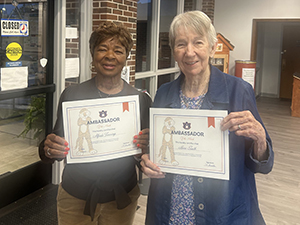
“It is very important, there are many people who walk around with health conditions every day but can’t spend the money to get seen by a doctor,” Chief Gibson emphasizes, recognizing the barriers many face when it comes to accessing healthcare. Together, Chiefs Doody and Gibson demonstrate how dedicated leadership can confront Alabama’s health challenges head-on, proving that community-focused advocacy has the power to transform lives.
While not everyone holds the title of “chief,” champions for health emerge in all forms, each bringing a unique perspective and dedication to their community. One such leader is Kate Bouchillon, the coordinator for Auburn University’s Health Ambassador Program. Passionate about empowering rural communities, Bouchillon works to connect residents with vital resources and inspire them to take charge of their health. “It’s not just about providing resources, it’s about creating relationships,” she explains. “When people see someone they know and trust advocating for their health, it makes all the difference.”
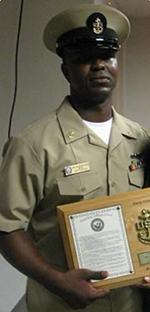
At the heart of the program is a mission to foster awareness and engagement. Ambassadors, individuals who share a commitment to uplifting their neighbors, serve as trusted liaisons, spreading critical health messages in areas where word of mouth is often the most effective form of communication. Bouchillon highlights their indispensable role, saying, “The ambassadors are the reason these initiatives succeed. They’re the ones out there, talking to people, breaking down barriers, and making health feel accessible.”
Bouchillon’s vision extends beyond current efforts. She’s eager to involve more high school students, believing they can be powerful advocates in their communities. “Where you live shouldn’t determine your health opportunities,” she stresses. By collaborating with schools, churches, and local businesses, the program has already made strides in encouraging preventative care and healthy lifestyles. Her advice to residents is simple yet profound, “don’t wait until it’s too late. Small steps now can prevent big problems later.”
Leaders like Bouchillon, alongside Fire Chiefs Jim Doody and Mike Gibson, exemplify the transformative power of community-driven health initiatives. Whether it’s greeting visitors with a warm smile at the Chambers County Health and Wellness Center, advocating for innovative healthcare solutions in Greene County, or inspiring ambassadors to champion health in their own backyards, these individuals are united by a shared commitment to catalyze community change. Through their efforts, Auburn University’s Rural Health Initiative is not just addressing the unique challenges of Alabama’s rural populations, it’s fostering hope, health, and meaningful change across the state.
Last Updated: December 6, 2024
